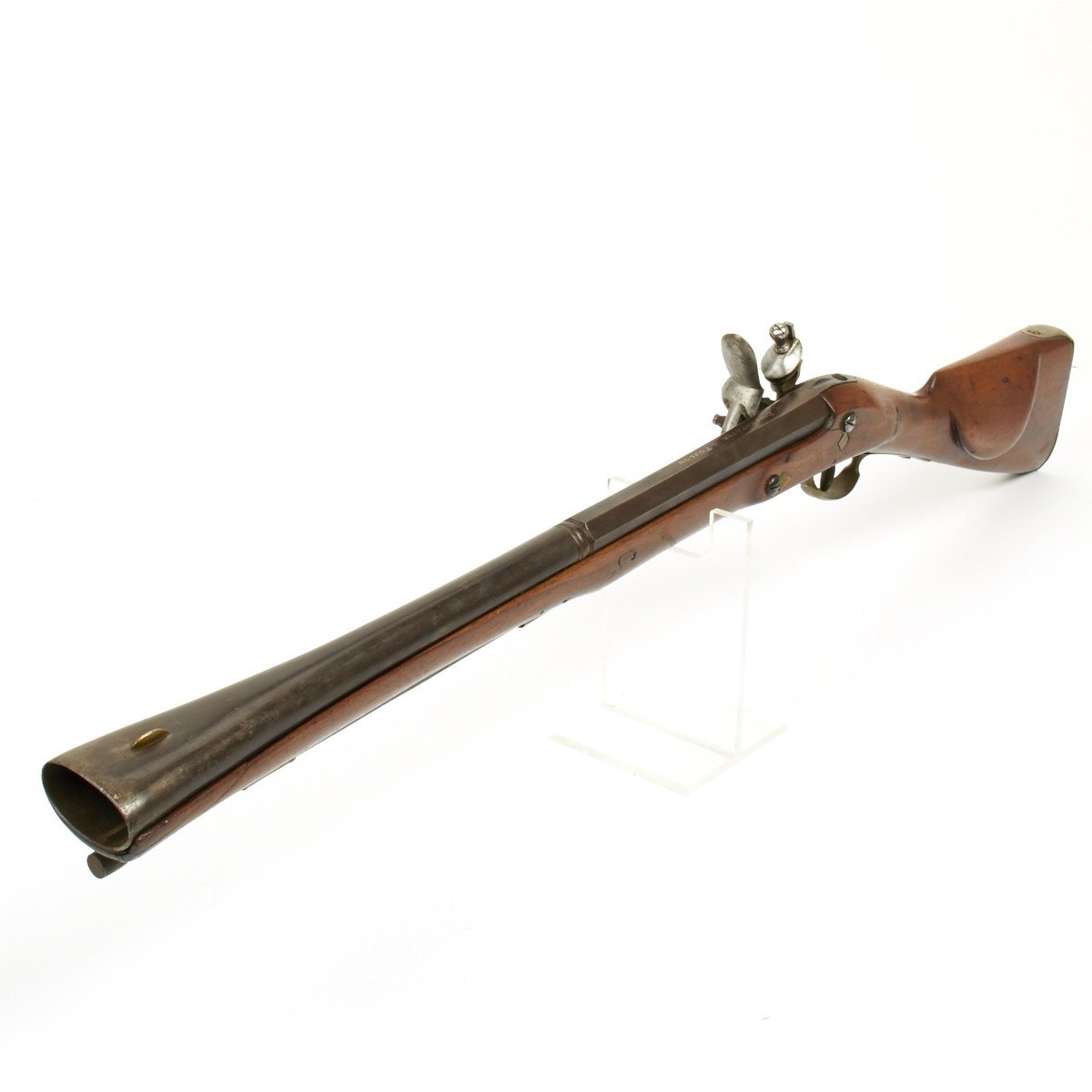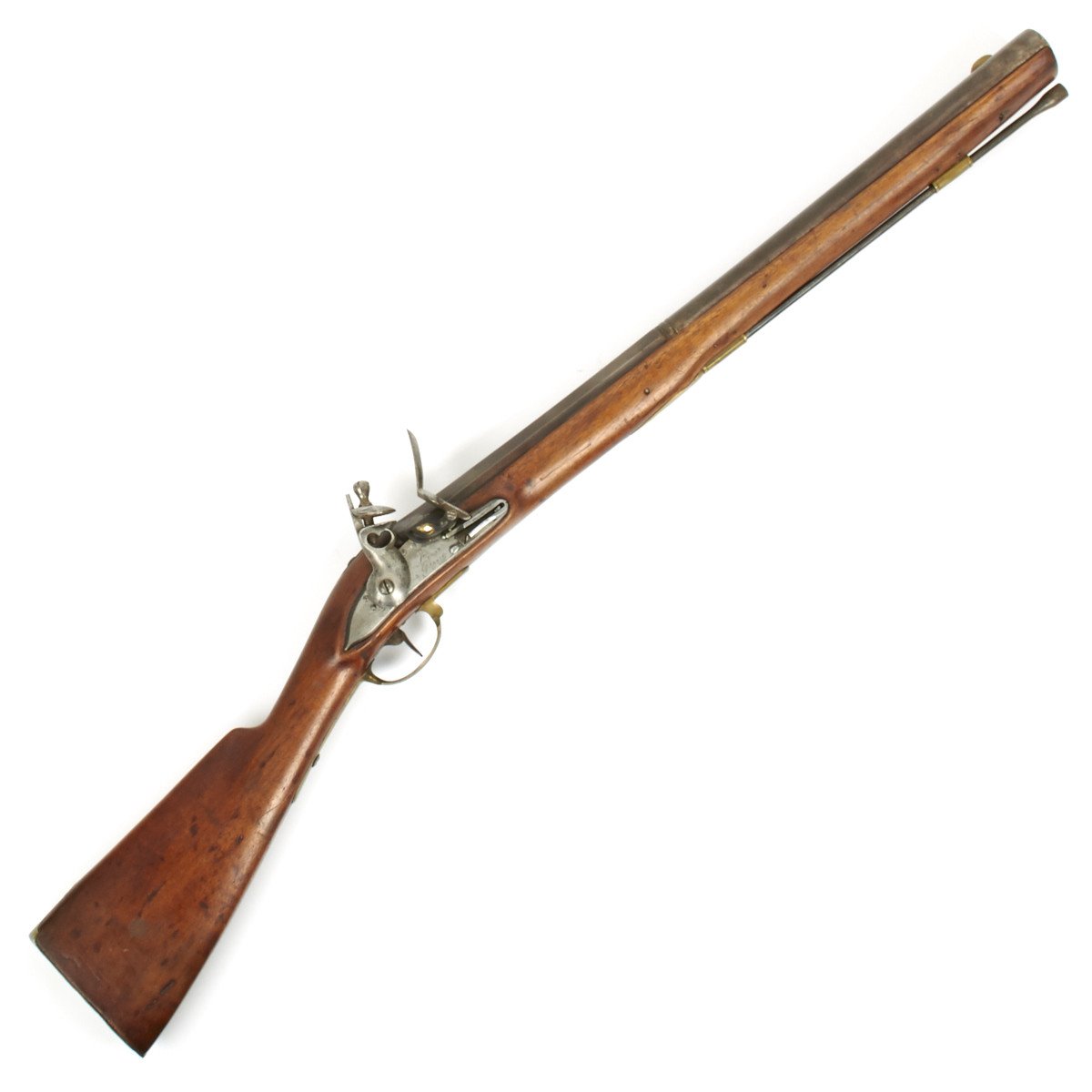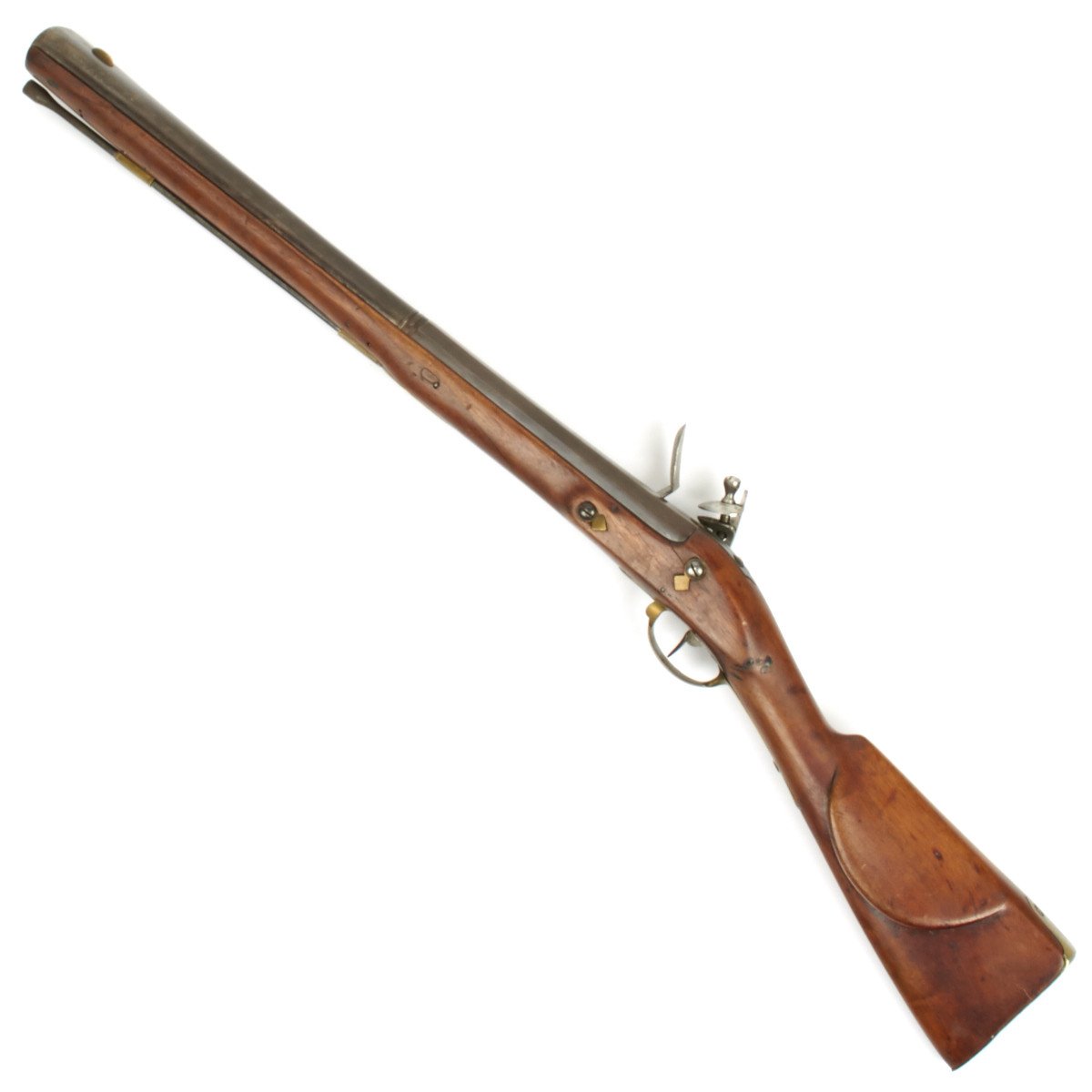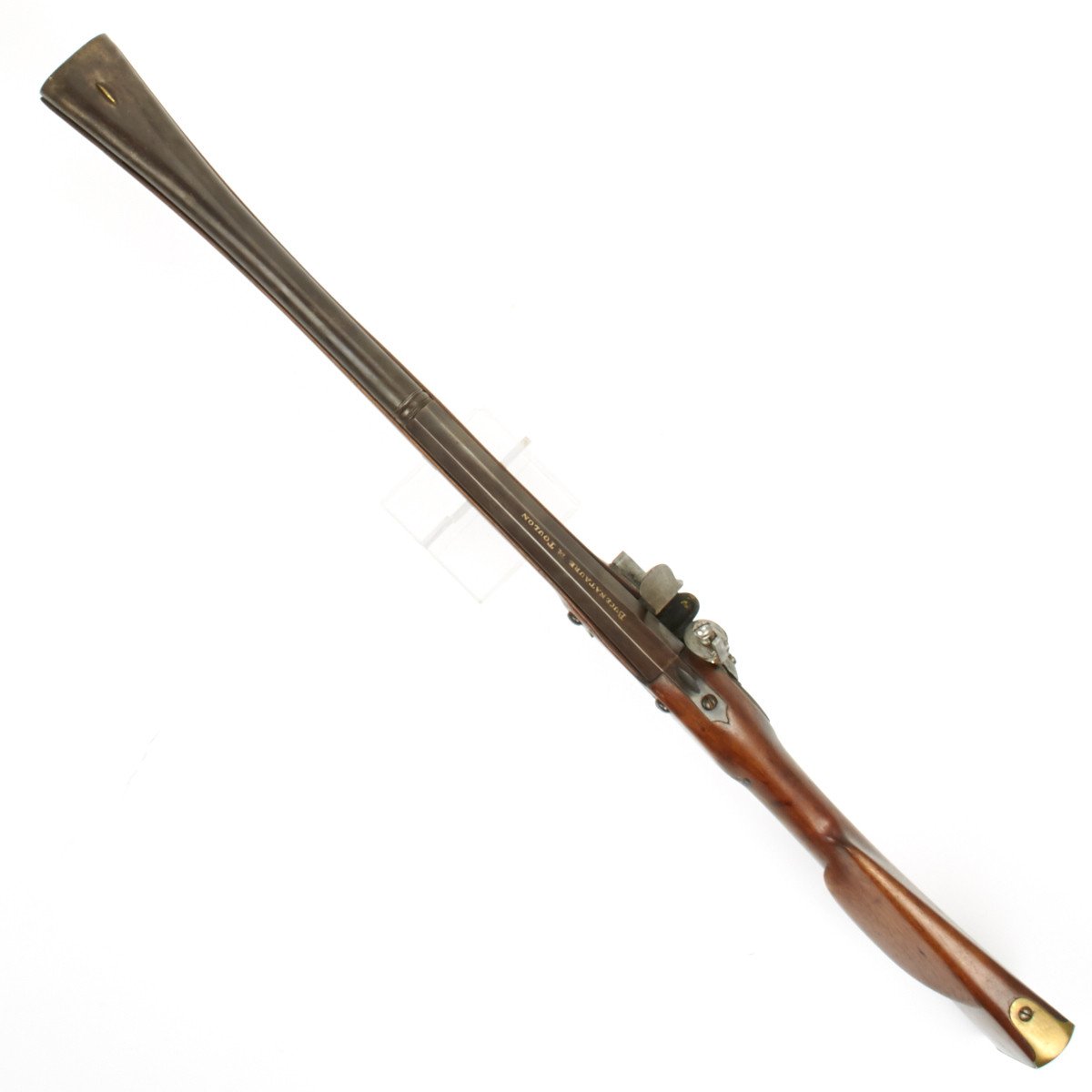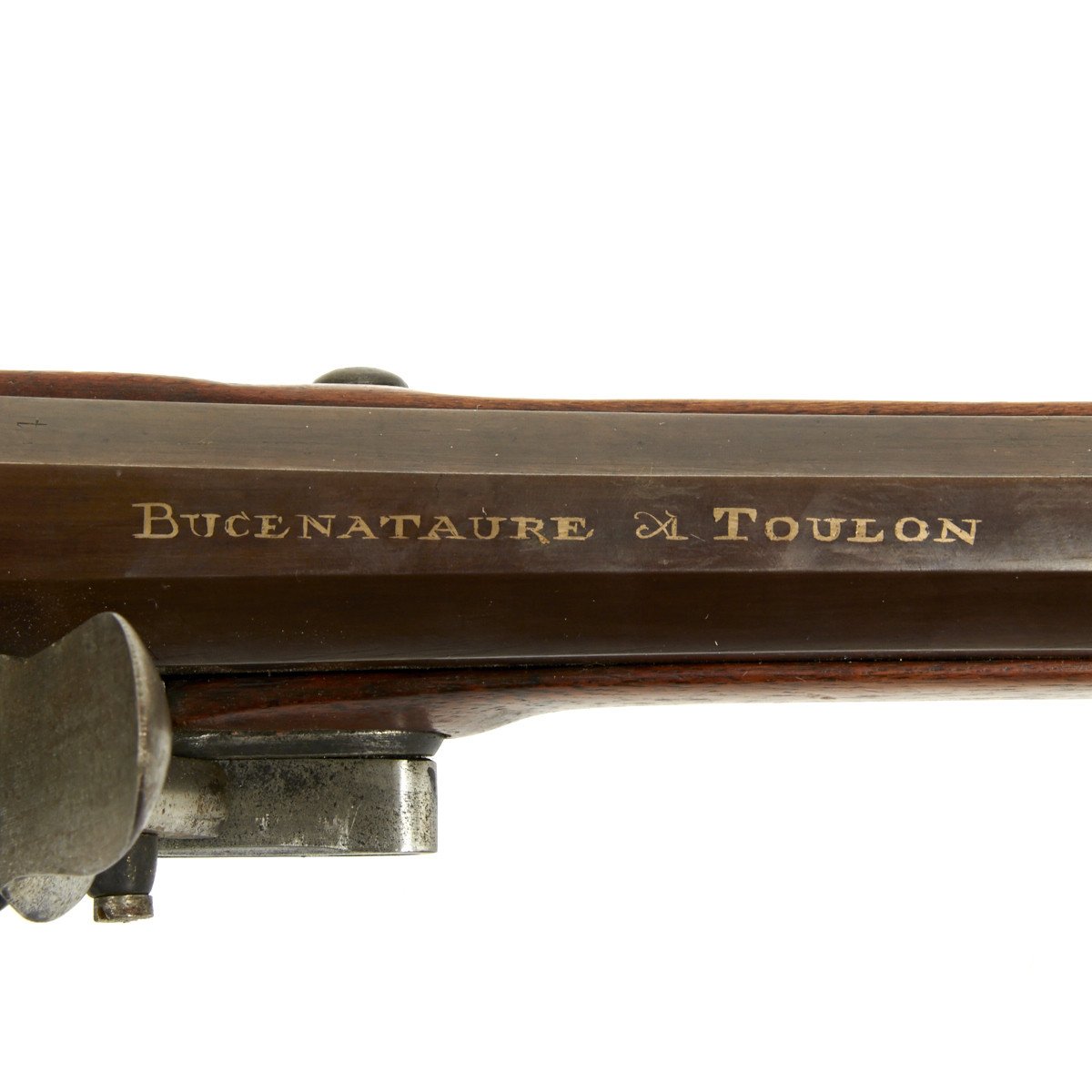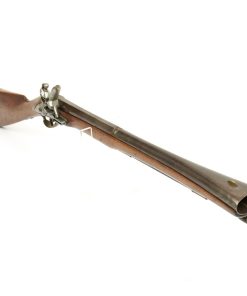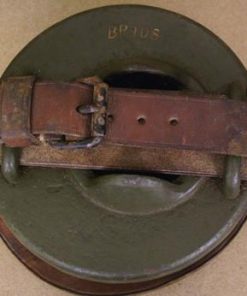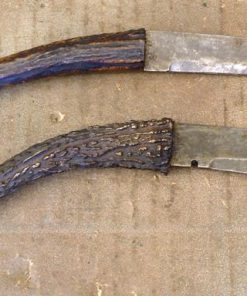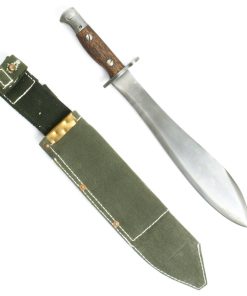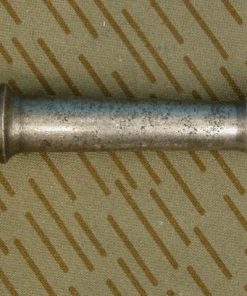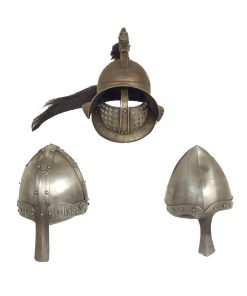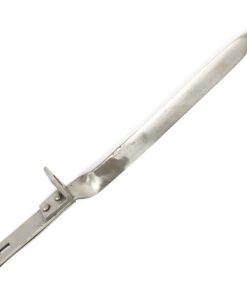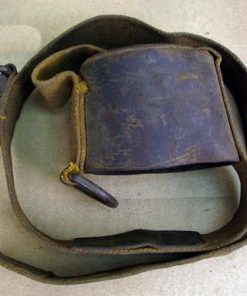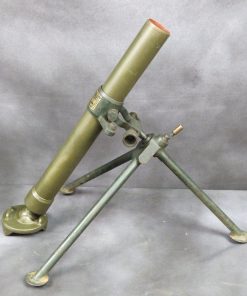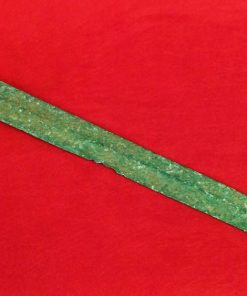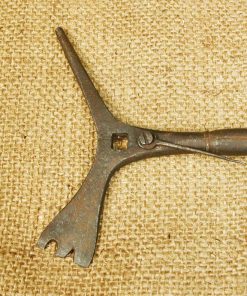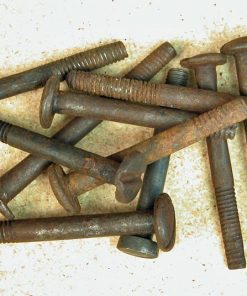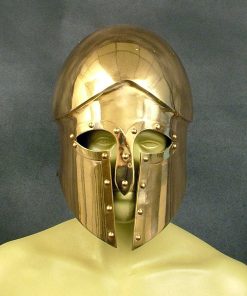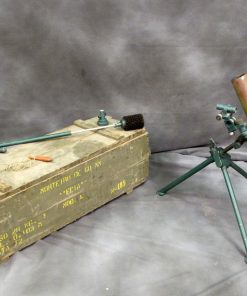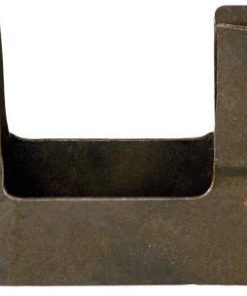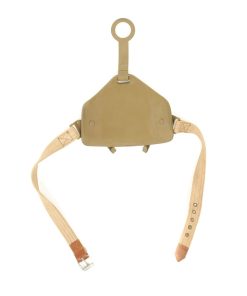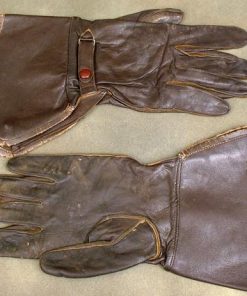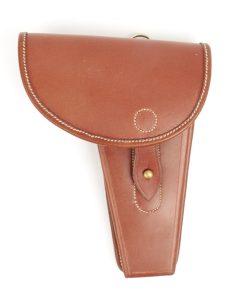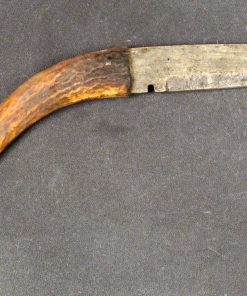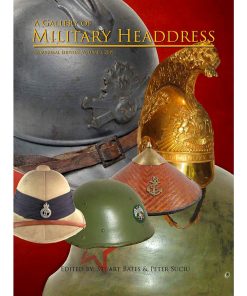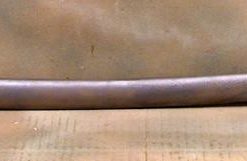Original French Napoleonic Wars Naval Flintlock Blunderbuss from the Ship Bucentaure Original Items
$ 7.495,00 $ 1.873,75
Original Item: One-of-a-kind. This is most unusual an oval muzzle shaped iron barrel flintlock blunderbuss with substantial brass mounts and military style lock assembly. The lock is marked:
LECUT
A PARIS
After research we have be unable to trace this maker indicating that it is most likely a retailer or arms dealer who located in Paris at the time.
The 23″ barrel is octagonal for the back 9.5 then becomes smooth extending to a unique oval mouth of 1.25 by 2.5 wide. What makes this gun so compelling is the inlaid silver inscription on the barrel that reads:
BUCENAURE A TOULON
The quality of this silver inlay indicates that this was a private purchase weapon, almost certainly of one of the officers of the ship Bucentaure.
Bucentaure was an 80-gun ship of the line of the French Navy, and the lead ship of her class. She was the flagship of Vice-Admiral Latouche Tréville, who died on board on 18 August 1804.
Vice-Admiral Villeneuve hoisted his flag on 6 November 1804. Bucentaure hosted the Franco-Spanish war council while sheltered from the British fleet at Cadiz. The vote was to remain in safe waters (a decision later overruled by Admiral Villeneuve). During the council, Spanish general Escaño complained that the atmospheric pressure was descending (a sign of approaching storms). French vice-admiral Magon famously retorted “the thing descending here is braveness”. This offended Admiral Gravina and other Spanish officers who did not oppose later the imprudent order of taking to sea.
At the Battle of Trafalgar, on 21 October 1805, she was commanded by Captain Jean-Jacques Magendie. Admiral Nelson’s HMS Victory, leading the weather column of the British fleet, broke the French line just astern of Bucentaure and just ahead of Redoutable. Victory raked her less protected stern and the vessel lost 197 men and 85 were wounded (including Captain Magendie); Admiral Villeneuve was lucky to survive, but this effectively put Bucentaure out of most of the fight. After three hours of fighting, she surrendered to Captain James Atcherly of the Marines from HMS Conqueror.
Villeneuve is supposed to have asked to whom he was surrendering. On being told it was Captain Pellew, he replied, ‘There is no shame in surrendering to the gallant Sir Edward Pellew.’ When he was informed that the Conqueror’s captain (Israel Pellew) was Sir Edward’s brother, he said, ‘England is fortunate to have two such brothers.’
In the following days, Bucentaure’s crew rose up against the British prize crew, and recaptured the ship. However, she was wrecked in the gale-force storm of 23 October 1805.
NOTE: International orders of antique firearms MUST be shipped using UPS WW Services (courier). USPS Priority Mail international will not accept these.
Fast Shipping with Professional Packaging
Thanks to our longstanding association with UPS FedEx DHL, and other major international carriers, we are able to provide a range of shipping options. Our warehouse staff is expertly trained and will wrap your products according to our exact and precise specifications. Prior to shipping, your goods will be thoroughly examined and securely secured. We ship to thousands clients each day across multiple countries. This shows how we're dedicated to be the largest retailer on the internet. Warehouses and distribution centres can be located throughout Europe as well as the USA.
Note: Orders with more than one item will be assigned a processing date depending on the item.
Before shipping before shipping, we'll conduct a thorough inspection of the items you have ordered. Today, the majority of orders will be delivered within 48 hours. The delivery time will be between 3-7 days.
Returns
The stock is dynamic and we cannot completely manage it because multiple stakeholders are involved, including our factory and warehouse. So the actual stock may alter at any time. It's possible that you may not receive your order once the order has been made.
Our policy is valid for a period of 30 days. If you don't receive the product within 30 days, we are not able to issue a refund or an exchange.
You can only return an item if it is unused and in the same state as the day you received it. You must have the item in its original packaging.
Related products
Uncategorized
Australian WWII Owen MK1 Machine Carbine SMG Custom Fabricated Replica with Sling Original Items
Uncategorized
Uncategorized
Uncategorized
Uncategorized
Uncategorized
Uncategorized
Angolan Rebel 1970s era 60mm Inert Display Mortar from Angolan Civil War Original Items
Uncategorized
Uncategorized
Uncategorized
Uncategorized
Uncategorized
Uncategorized
Uncategorized
Uncategorized
Uncategorized
Uncategorized

